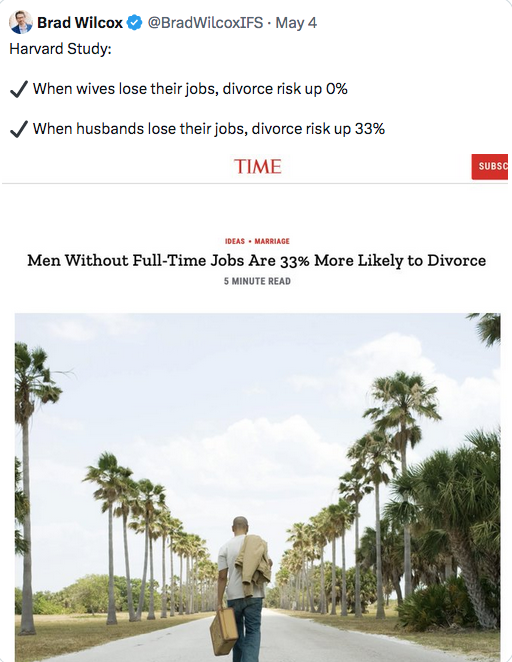Katy Faust@Advo_Katy
·
I've never seen this statistic before. But it does not surprise me.
In marriage counseling we talk about how men need their wife to be his “fan, follower, and finisher”. He needs to feel like she is cheering him on, she needs to follow when he leads in a godly way, and she should “finish” or complete the areas where he may be lacking. That is especially true when it comes to his vocation.
Maybe he runs a landscaping business, but he's bad with numbers. So she steps in to help with some accounting. Maybe he works with high-level executives and she understands the importance of a classy dinner in their home for foreign guests. She sees where he is lacking in his job and helps him succeed.
None of that mandates that her world revolves around his career, but she does have a distinct role to fill when it comes to his effectiveness in his vocation.
Why does she need to be more invested in his career than he is in hers?
1. Even if they don't have children yet, women generally want to stay home at least part time when their children are young. That was certainly the case with me. I never had that burning ache for babies, and I loved working full-time. But once my daughter was in my arms, I was willing to let go of my job, even though it meant that we lived very lean economically for a long time. Women stepping away from their careers is also what children need. So his vocational success is going to be a more consistent and dominant piece of the economic puzzle throughout their married life.
2. More importantly, his self-esteem is more tightly connected to what he can deliver to the world. His identity is more closely aligned with his job performance. Even though women can enjoy their jobs and succeed, they are more likely to tie their emotional health and identity to a relational context, not a vocational one.
Men flourishing in their jobs is more central to familial flourishing than women's.
